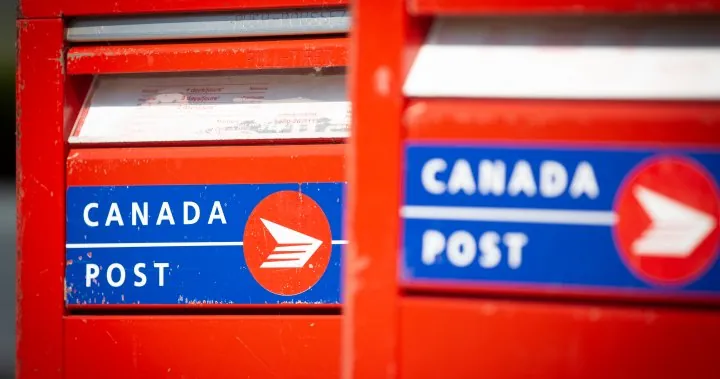
Nationwide Canada Post Strike Sparks Delays and Calls for Negotiation
2024-11-15
Author: Emily
The ongoing strike by Canada Post workers has sparked significant concerns among Canadians, as officials confirm the government is prioritizing negotiations rather than enforcing a forced resolution. Canada’s Labour Minister, Steven MacKinnon, emphasized the necessity of collective bargaining, stating, "I’m not looking at any other solution other than negotiation." In his remarks from Montreal, he underscored the need for ongoing discussions as both parties attempt to reach a fair agreement.
On November 15, at precisely 12:01 a.m. ET, around 55,000 postal workers represented by the Canadian Union of Postal Workers (CUPW) initiated a nationwide strike after negotiations failed to produce results. Canada Post warned that the strike would result in delivery delays across the country, affecting millions of Canadians, including small businesses and remote communities dependent on postal services.
The union issued its strike notice earlier in the week, as MacKinnon acknowledged the negotiations as “extremely difficult,” highlighting that significant issues remained unresolved. According to Canada Post, customers can expect their mail and parcels to be delayed, and essential services in Northern and remote areas would be temporarily suspended.
While the strike halts most postal services, officials confirmed that benefit cheques, including those for the Canada Pension Plan and other essential payments, will still be distributed on scheduled dates despite the work stoppage. However, Canada Post has cautioned that once operations resume, there will be a backlog of items delivered on a first-in, first-out basis, potentially extending the delays.
The CUPW described the decision to strike as "difficult," blaming Canada Post for failing to engage in meaningful negotiations. They demand fair wages, improved working conditions, and better job security, arguing that the employer’s proposals do not adequately address these concerns despite Canada Post claiming to have offered wage increases of 11.5% over four years.
Historical context shows that this is not the first instance of work stoppages at Canada Post; previous strikes occurred in 2011 and 2018, both ending with government intervention. As the holiday season approaches, the impact of the strike has raised alarms among business organizations, including the Retail Council of Canada, which called the timing "the worst" for such disruptions in service.
The federal government remains hopeful for a resolution, providing mediation support to both sides. However, should a resolution remain elusive, the government may consider back-to-work legislation, which would require support from other political parties. This move could further complicate negotiations, especially considering that the New Democratic Party (NDP) has indicated opposition to such measures.
As the situation develops, many Canadians are left wondering how long the strike will last and what the long-term implications will be for postal services. With both the union and Canada Post maintaining their positions, the pressure is on to find common ground before the impact on mail delivery spirals further out of control.









 Brasil (PT)
Brasil (PT)
 Canada (EN)
Canada (EN)
 Chile (ES)
Chile (ES)
 España (ES)
España (ES)
 France (FR)
France (FR)
 Hong Kong (EN)
Hong Kong (EN)
 Italia (IT)
Italia (IT)
 日本 (JA)
日本 (JA)
 Magyarország (HU)
Magyarország (HU)
 Norge (NO)
Norge (NO)
 Polska (PL)
Polska (PL)
 Schweiz (DE)
Schweiz (DE)
 Singapore (EN)
Singapore (EN)
 Sverige (SV)
Sverige (SV)
 Suomi (FI)
Suomi (FI)
 Türkiye (TR)
Türkiye (TR)